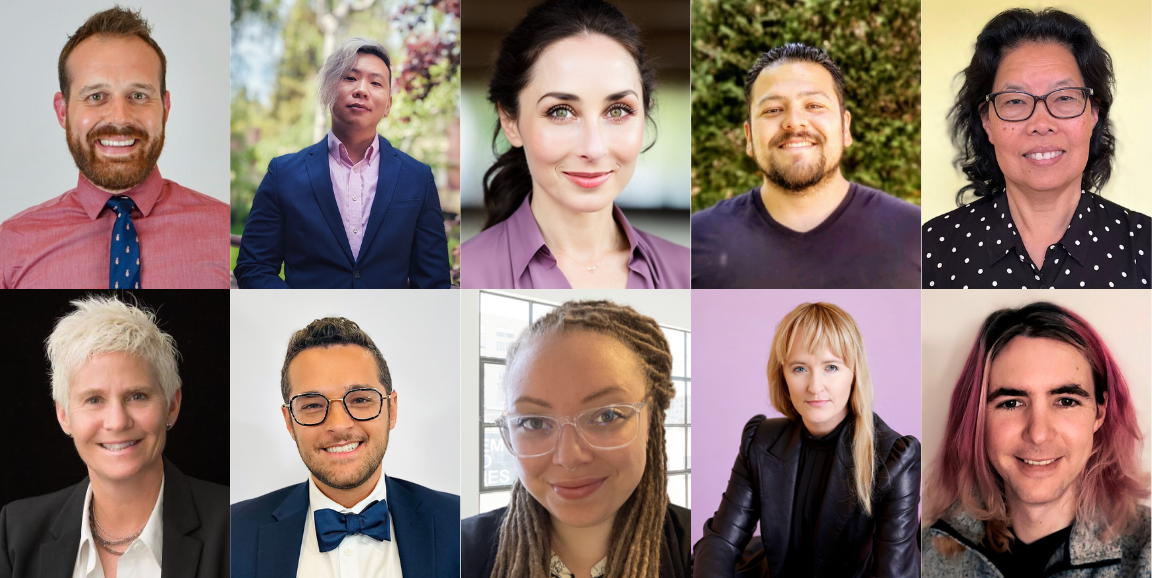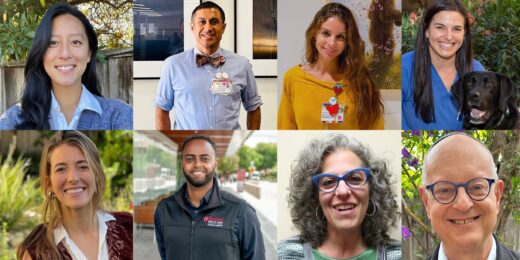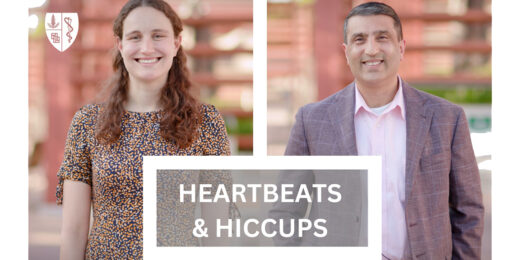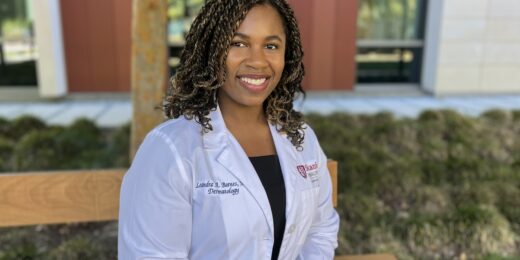This Is My Why is a series that explores the inspirations and motivations of Stanford Medicine researchers, clinicians, leaders, students and staff in their work and beyond.
Across Stanford Medicine, doctors, nurses, educators and others are finding ways to ensure members of the LGBTQ+ community feel included and heard. These leaders don't shy away from the challenges; instead, they're passionate about a brighter future for employees, patients and community members who identify as LGBTQ+. Below, we highlight people who are promoting Stanford Medicine's commitment to LGBTQ+ care, education and advocacy.
Lynn Baggese, patient care manager, Stanford Medicine Children's Health
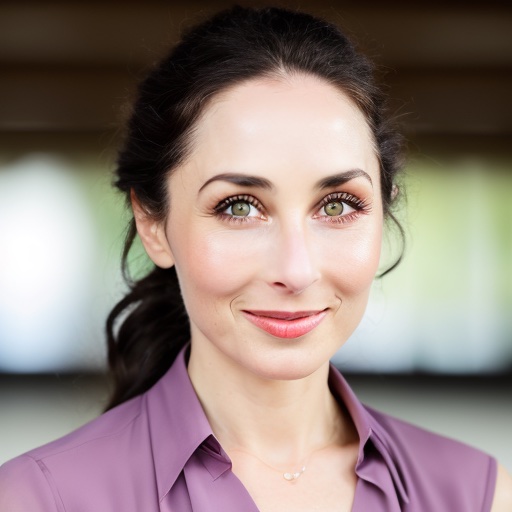
Baggese is a member of the Gender Recognition and Affirmative Care through Education team. The GRACE team educates Stanford Medicine Children's Health staff on the LGBTQ+ patient population and their health care needs.
"Stanford Medicine Children's Health's mission -- to serve all patients with respectful, family centered, individualized care, regardless of who they are or where they come from -- speaks to me and aligns with my personal beliefs. LGBTQ+ minorities are underserved and need more support. I have watched friends and family face unique health care challenges as LGBTQ+ individuals and, as a GRACE team member, I help prevent others from having similar experiences. I am proud of the incredible work I do with GRACE to promote a more inclusive environment for all staff, families and patients at Stanford Medicine Children's Health."
Bláz Bush, executive director of the LGBTQ+ Health Program, Stanford School of Medicine
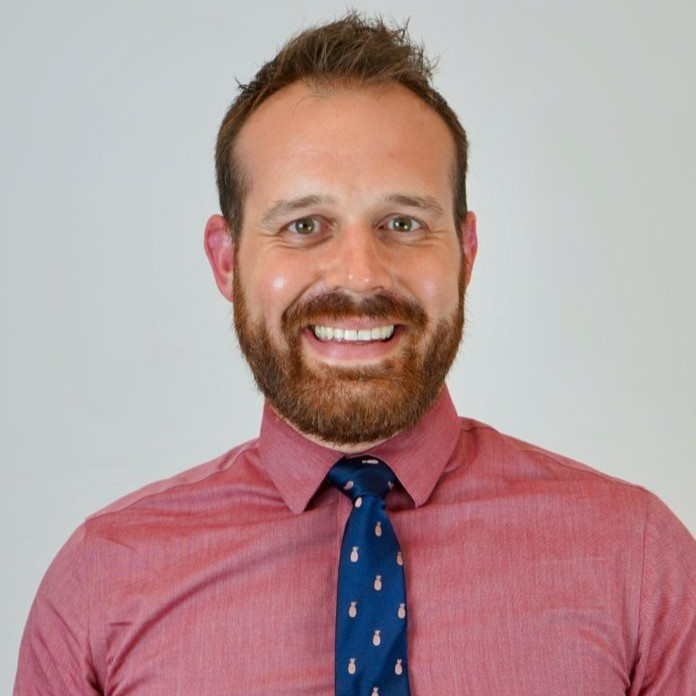
Bush leads the LGBTQ+ Health Program Stanford Medicine, which is committed to a compassionate approach to education, research, clinical care and advocacy for and about the LGBTQ+ community. Bush also consults with Stanford Medicine departments to develop more inclusive policies -- all informed by Bush's own experiences and guided by his 13 years in LGBTQ+ health care.
"Growing up queer in rural Texas, I hated myself. My father was the football coach, and I would analyze how the football players in my classes walked so I could imitate them and feel safer. I would do anything to fight against thoughts I believed were wrong. I would snap a rubber band around my wrist -- my own version of conversion therapy. I thought I shouldn't be. When I was a teen, I didn't know if I should be tested for HIV. Was I at risk? How does transmission happen? My primary care provider never asked, always assuming I was interested in girls. I wasn't able to get the health care I deserved until I went to college and found a free clinic that wasn't part of my college campus, as I was still afraid of how I'd be treated if people knew.
"I hated the best parts of who I was, and it took me years to learn to love myself. I was fortunate to eventually find resources that spoke to my lived experiences, and I can't imagine how difficult it might be for young people who don't have such access today or have limited access to lifesaving critical and evidence-based affirming care."
Amanda Cruz, senior manager of inclusion, diversity and equity, Stanford Medicine Partners
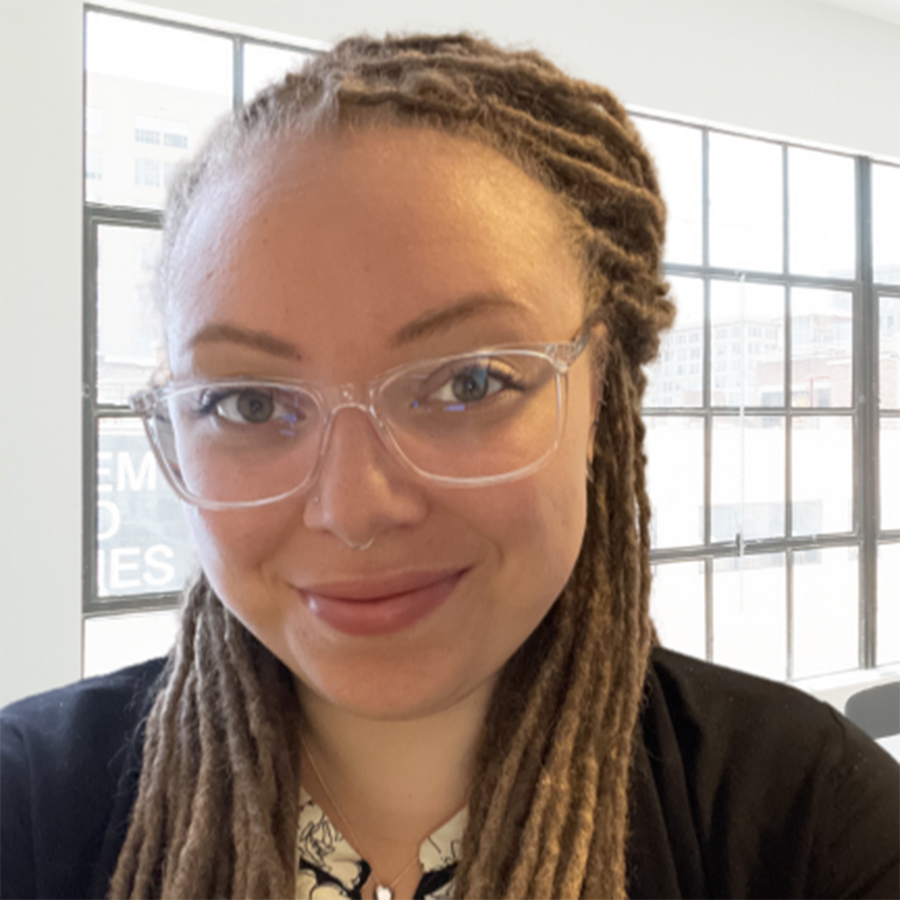
Cruz chairs the Inclusion Diversity and Health Equity Steering Committee at Stanford Medicine Partners. Her work as an educator and workshop facilitator has deepened her understanding of how to create more inclusive systems and experiences for LGBTQ+-identifying people and other minority groups.
"What I love most about this work is that it is for everyone. We all have the opportunity to create environments that are more inclusive, and every day is a new opportunity to improve and learn something new. It can be as simple as listening more, asking more questions and using what you learn to inform the spaces we create and the ways we engage with another. I am fueled by the sheer impact we can all make through our connections with one another. By truly understanding one another's needs, we will continue building equity-driven and transformative change."
Alejandro Cuevas, inclusion, diversity and health equity program coordinator, Stanford Health Care Tri-Valley
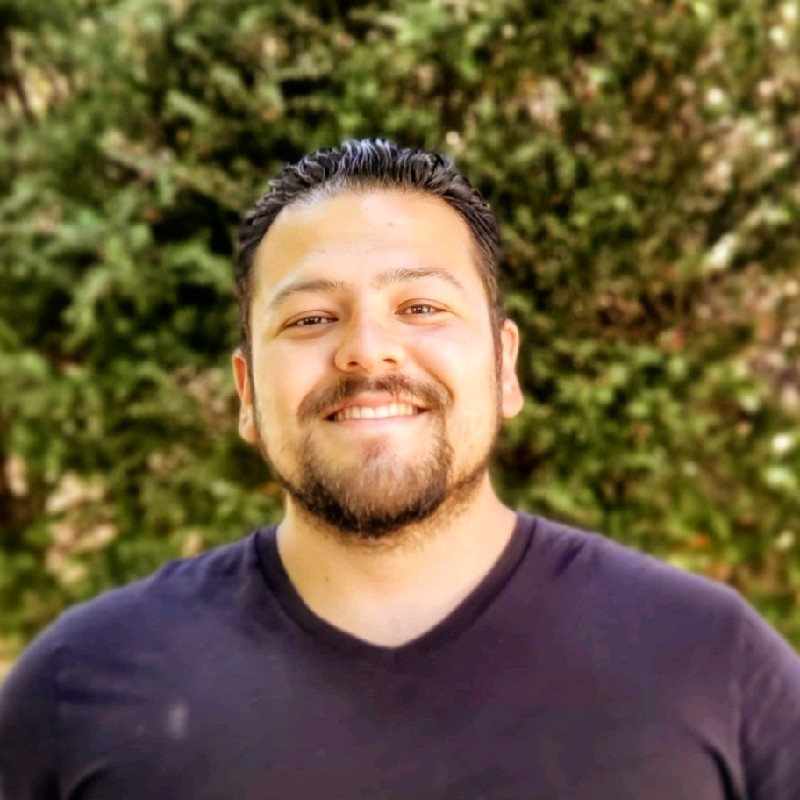
Cuevas provides health care workers and employees with educational resources and trainings on LGBTQ+ health awareness, how to be an ally to the transgender community, and understanding gender and pronoun preferences, among other topics. He has also helped organize Pride celebrations at Stanford Health Care Tri-Valley.
"So much positive change can happen if we care for each other and are decent to one another. I love being part of a community that supports each other. I have an opportunity to work with, and be supported by, a lot of great people, and I'm forever grateful to them. And I get to pay it forward. That's the kind of environment that I want to work in -- there's so much love in this world, and it can get overshadowed by hate. But the diversity of our community and the inclusion we embody can make for a really healthy culture."
Stevie Eberle, executive director, Stanford BioSci Careers, Stanford School of Medicine
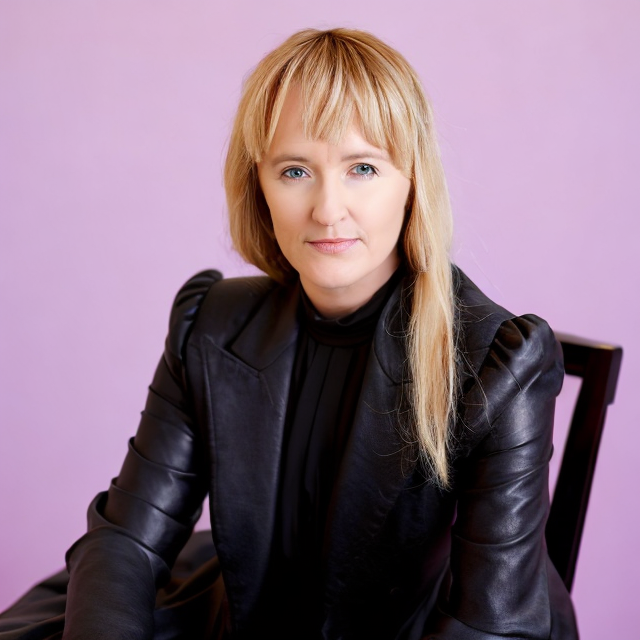
Eberle builds communities, convening partners from myriad backgrounds to inform strategic priorities, policies and service goals. They lead and organize An Evening of Queer Joy, a Stanford Medicine event that focuses on the intersectional queer experience and creates immersive community spaces, opportunities for authentic expression, and an environment of reflective learning.
"I feel called to empower others to realize their most authentic selves and to pursue success on their own terms. People work best in environments where they can freely express their whole selves: their unique identities, values and interests. Being queer or any 'othered' group limits this expression. We cannot live in certain places without the threat of violence. We cannot work in certain fields without the added burden of tokenization. And being out is a daily process. I create spaces of belonging to ensure Stanford Medicine's culture is different. My 'why' is this: I work here because I see beauty, power and potential in each of my students and trainees, staff members and partners, even when it seems like so much of society does not. I wake up each day hoping that, by the end of it, they will be a little closer to seeing what I see."
Sigi Javitz, principal data scientist, population health, Stanford Health Care
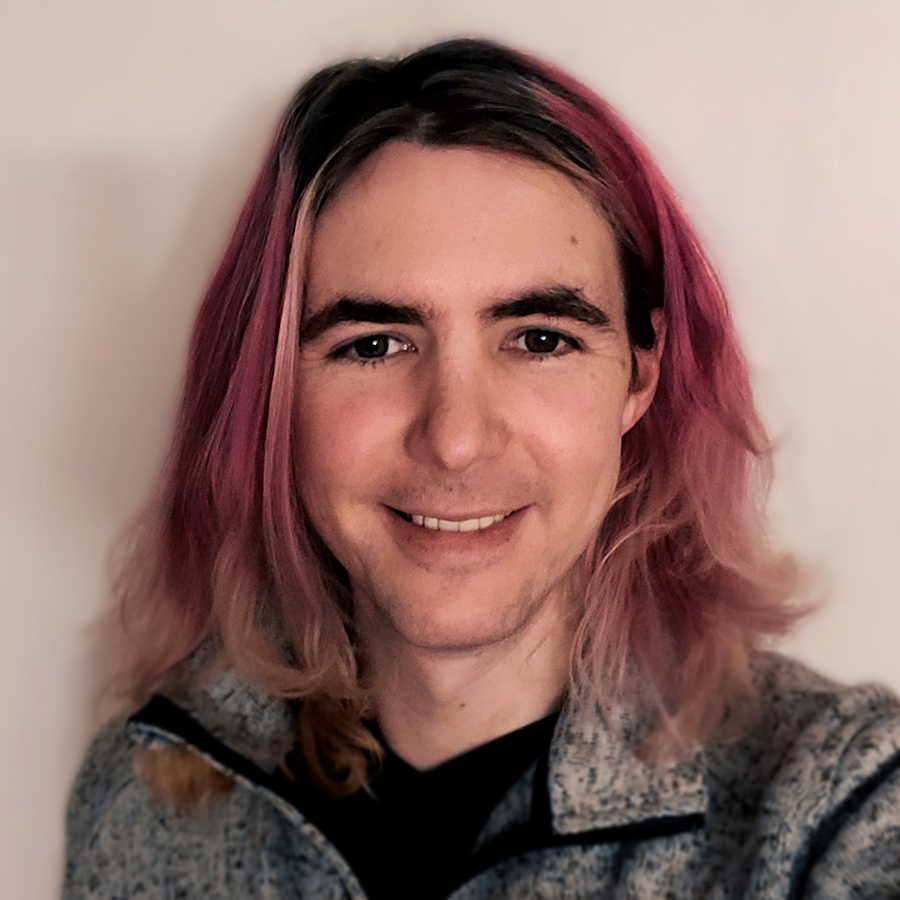
Javitz is a leader on the Pride and Emerging Professional's Employee Resource Group. As an LGBTQ+ individual (pansexual, transgender, nonbinary, aromantic, and polyamorous are some of the labels they use) and professional within the Pride and Emerging Professionals Employee Resource Group, they apply their practical, personal experiences and narratives to help inform how queer individuals experience health care and provide an understanding of the gaps in education for non-queer health care staff.
"Navigating the health care system is a complicated task, even for an insider. I love that I get to help marginalized communities navigate health care more easily and to improve their access, experience and outcomes. The work I do to improve the LGBTQ+ health care experience is especially fulfilling and energizing to me because I know how alienating it can feel to be treated poorly when one is in a vulnerable state and seeking medical care.
Benjamin Laniakea, MD, clinical assistant professor of medicine, Stanford School of Medicine and Stanford Health Care
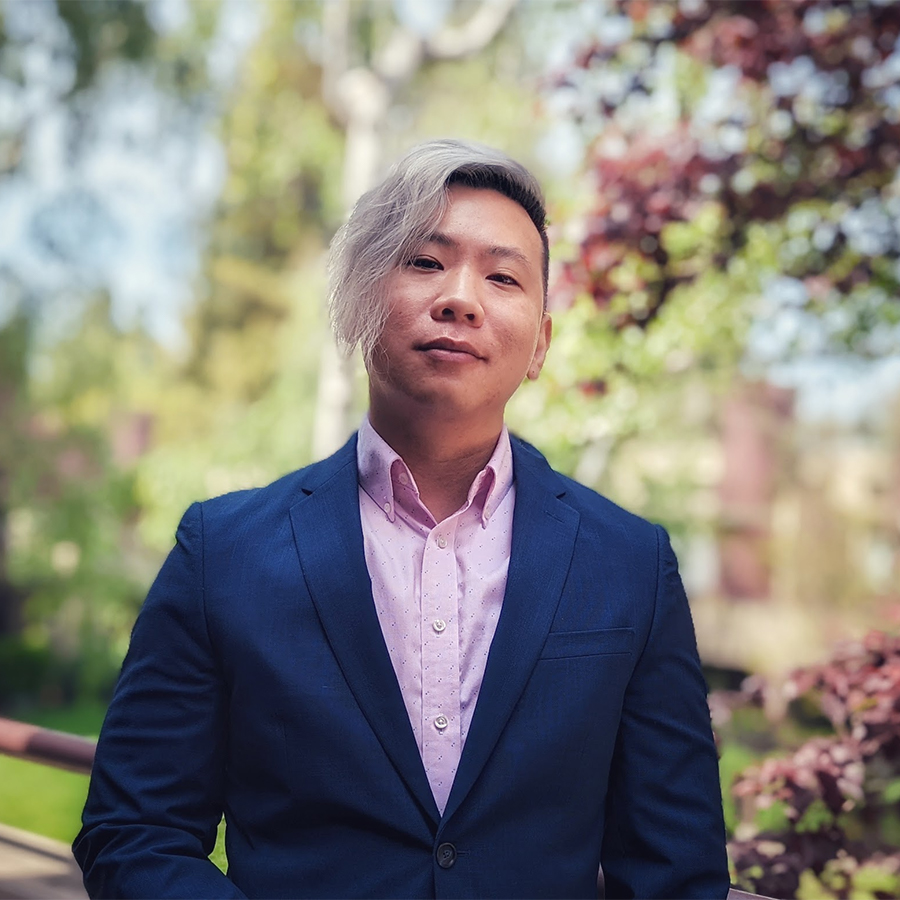
Laniakea leads the Stanford LGBTQ+ Adult Clinical Program. They is the sex, gender, sexuality and sexual function lead of the clinic, passing on the clinical expertise being cultivated at the LGBTQ+ clinical program to the next generation of medical students. At the clinic, students can work face to face with patients and experience why there's so much passion for advancing care for the LGBTQ+ community.
"While the goal is always to lead with compassion, LGBTQ+ patients deserve so much more than mere acceptance. These patients deserve care tailored to their health and to their lives across the vibrant and diverse spectrum of genders and sexualities that call our community home. I want to create a generation of doctors with compassion and competence in LGBTQ+ health issues so that future generations in my community can feel like they can go to the doctor's office without fear of discrimination or prejudice and leave the doctor's office feeling understood and cared for."
Brent Monseur, MD, postdoctoral fellow, reproductive endocrinology and infertility, Stanford School of Medicine
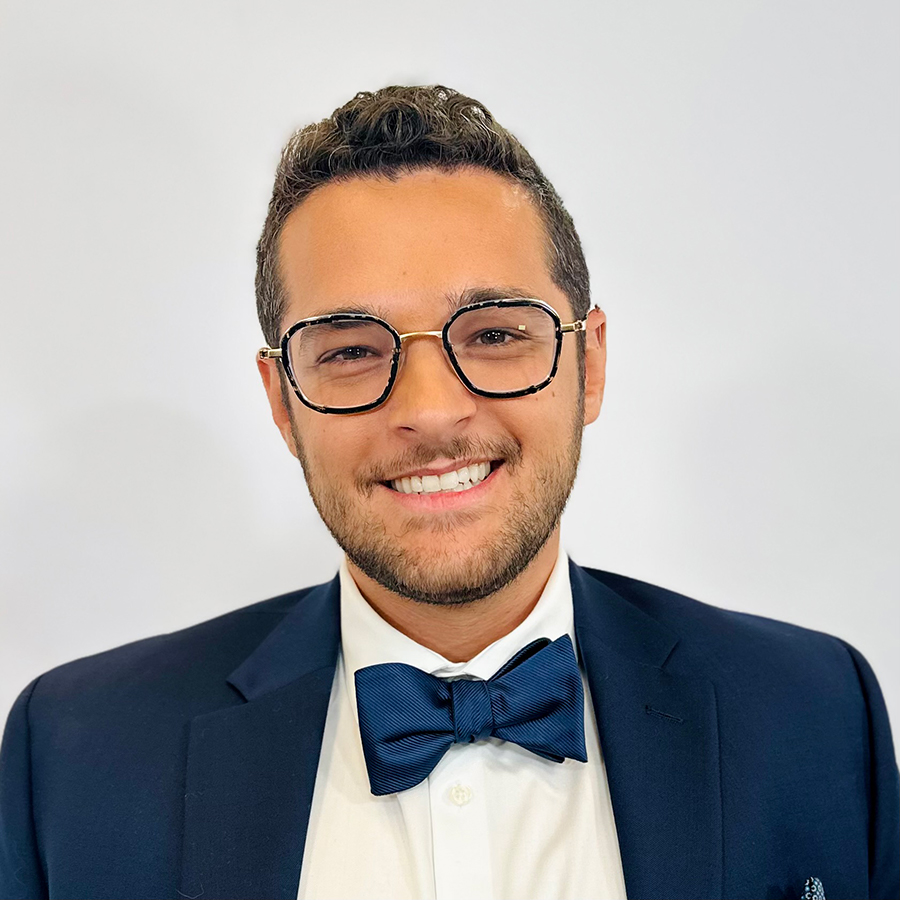
As director of the LGBTQ+ Family Building Clinical Research Program, Monseur ensures that students, physicians and patients understand the unique pathways to parenthood for sexual and gender minority populations. Because research within reproductive medicine has historically excluded these populations, his team seeks answers to important questions regarding LGBTQ+ families.
"While support for LGBTQ+ family building is increasing, there is a long history of medical and legal obstacles, as well as persistent health access barriers, for these vulnerable populations. I hope to rectify these past wrongdoings through an academic model of excellence for an LGBTQ+ family building clinical research program that can be exported across the country."
Leslee Subak, MD, professor and chair of obstetrics and gynecology, director of the LGBTQ+ Health Program, Stanford School of Medicine and Stanford Health Care
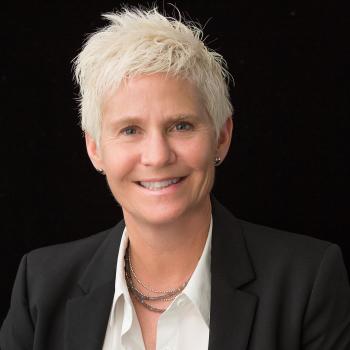
When Subak arrived at Stanford Medicine six years ago, she was impressed by the many people working on LGBTQ+ health and research. But she noted the need for a cohesive, multidisciplinary program. Enter the LGBTQ+ Health Program, which Subak founded in 2017. The program's four pillars -- clinical care, research, education and leadership -- are focused on delivering the best in primary, surgical, behavioral and gender-affirming care in a compassionate and understanding environment.
"Many members of the LGBTQ+ community are often reluctant to seek medical care because of past experiences with the medical system. No one wants to have to repeatedly come out to their health care providers. Lesbians who say they can't be pregnant shouldn't have to undergo repeated pregnancy tests, for example. Insisting they do so undermines the trust and faith and autonomy of that individual. My clinical practice is not LGBTQ+ focused, but as a lesbian I am embedded in this community. When we provide outstanding, respectful and understanding care, we nourish people physically and mentally. We improve lives. It's important to me to be able to go to work almost every day and say, 'I love this'. And I love it here at Stanford. My work with the LGBTQ+ Health Program has been a complete joy."
Ann-Marie Yap, executive director, customer experience and support services, Stanford Health Care
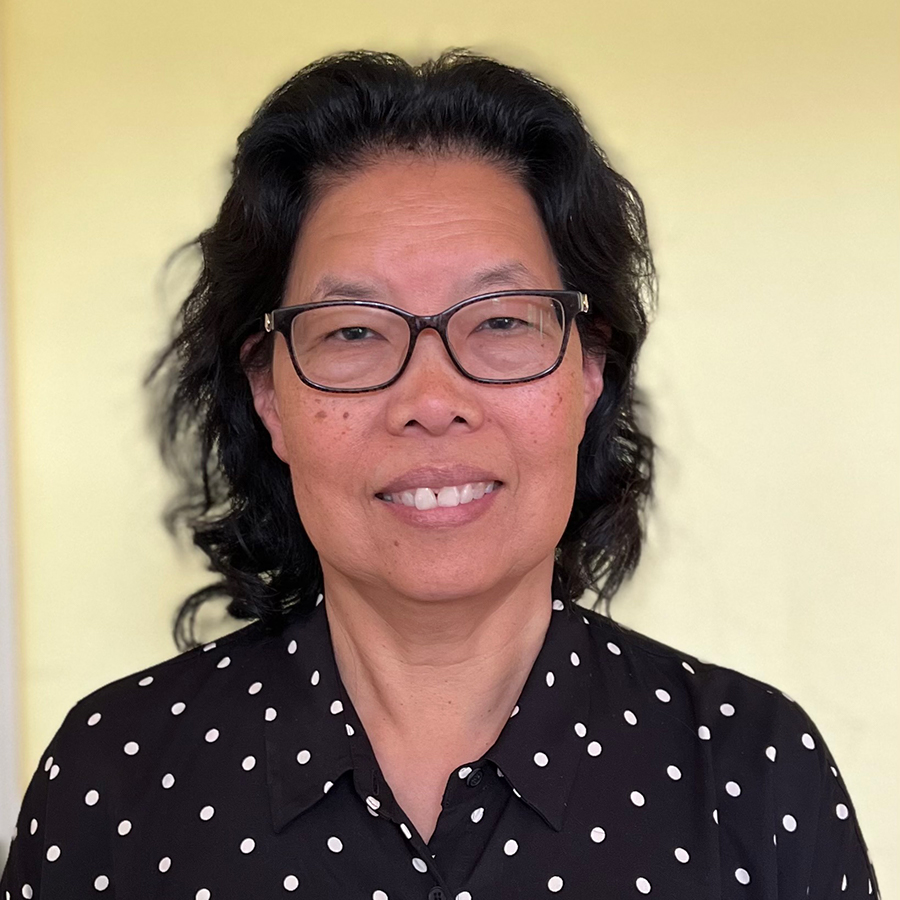
Yap works with her teams to improve the experiences of the staff, faculty, providers, students and patients of Stanford Medicine. She believes in encouraging diversity and inclusion in every community. She is a founder of the Pride Employee Resource Group at Stanford Medicine and a co-chair of the Stanford Medicine LGBTQ+ subcommittee. She has worked on many LGTBQ+ initiatives at Stanford Medicine, including pronoun stickers for badges, an individual's preferred name on badges, gender-neutral bathrooms, equitable benefits for the LGBTQ+ community and more.
"Stanford Medicine focuses on people. We want everyone to bring their whole self to Stanford Medicine and feel comfortable and safe with who they are. Our staff, clinicians, faculty and LGBTQ+ patients should feel that we care regardless of gender, race or ethnicity. As a Stanford Medicine leader, I have a unique opportunity to bring a face and voice to LGBTQ+ health and inclusion. We are your friends, coworkers, team members and peers. We need to ensure that the LGBTQ+ community feels safe, seen and heard -- and part of the Stanford Medicine community. There is still a lot of work to be done to ensure that our LGBTQ+ community feels this way, and that our needs are met. I am proud to lead this effort and give a voice to the LGBTQ+ community."
Collage by Margarita Gallardo


